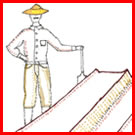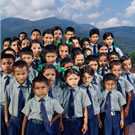STUDENT RESOURCE PAGE
OL 343 Designing and Funding Non Profit Projects
This OL 343 Student Resource Page has three sections that can easily be reached by clicking on the red links just below.
Read the Class Homepage First.
- Download Documents. This is where you can download Word, Excel and PDF documents that can save as course resources for future projects and use as templates for the assignments.
- The Course Website. Webpage versions of the discussions and assignments for each week.
- Read this first: The Class Home Page. This gives you an overview of the course and also sets up the course logistics.
Download Course Documents
OL 343 Designing and Funding Non Profit Projects
General Documents
Week One
OL 343 Assignment One Homework Instructions PDF 35K
Magee Example Project OL 343 Assignment 1 Word Document to 35K
OL 343 Assignment 1 Discussion PDF 35K
Week Two
OL 343 Assignment Two Homework Instructions PDF 35K
Magee Example Project OL 343 Assignment 2 Word Document 35K
OL 343 Assignment 2 Discussion PDF 35K
Week Three
OL 343 Assignment Three Homework Instructions PDF 35K
Magee Example Project OL 343 Assignment 3 Word Document 35K
OL 343 Assignment 3 Discussion PDF 35K
CARE Climate Vulnerability and Capacity Analysis Handbook
OL 343 PCVA Workshop Field Guide and a Lesson Plan Word Document 220K
Week Four
OL 343 Assignment Four Homework Instructions PDF 35K
Magee Example Project OL 343 Assignment 4 Word Document 35K
OL 343 Assignment 4 Discussion PDF 35K
Week Five
OL 343 Assignment Five Homework Instructions PDF 35K
Magee Example Project OL 343 Assignment 5 Word Document 35K
OL 343 Assignment 5 Discussion PDF 35K
101 Hands-On Field Activities for Community Based Adaptation Projects Webpage
Specialized Links to Adaptation Documents and Sites Webpage
Specialized Links to Adaptation Documents and Sites Webpage
Week Six
OL 343 Assignment Six Homework Instructions PDF 35K
Magee Example Project OL 343 Assignment 6 Word Document 36K
OL 343 Assignment 6 Discussion PDF 35K
OL 341: 50 Programs and Activities That You Used In Your First Project Outline Word Document
Week Seven
OL 343 Assignment Seven Homework Instructions PDF 35K
Field Guide Knowledge Transfer—Developing Field Guides, Lesson Plans, and Workshops Word Document 35K
Magee Example Project OL 343 Assignment 7 Word Document 35K
OL 343 A7 Lesson Plan – Forming a Community Agricultural Committee Word Document 35K
OL 343 Assignment 7 Discussion PDF 35K
Village Forestry Training Manual. Forming and operating a village forestry core group. Pp. 155 – 161
Week Eight
OL 343 Assignment Eight Homework Instructions PDF 35K
Magee Example Project OL 343 Assignment 8 Word Document 36K
OL 343 Assignment 8 Discussion PDF 35K
Webpages with Weekly Course Discussions and Assignments
Class Home Page
Welcome to CSDi Online Learning’s OL 343. Community Based Adaptation to Climate Change 3. The Community Focus.
The Course
In this course you will continue to build a project around community need.
Logistics
The class week begins on Tuesdays; assignments need to be sent to me by the Monday 7 days later. This allows students without Internet at home to access Internet at work on Mondays in order to send their assignment in.
You have signed up for a specific course within specific dates. If you are not able to complete the course within these dates, the Center allows you to take the course again for 50% of the normal course fee if you enroll in the very next scheduled course and use the very same project. Unfortunately, we can’t make exceptions.
The Student Resource Page contains:
1. Links for downloading the weeks’ documents: be sure to save the documents for future reference.
2. Links for the background Discussion on the week’s homework assignment; in this case – OL 343 Discussion 1; read this first each week
3. Links to the week’s Assignment; in this case – OL 343 Assignment One Homework
4. Links to the Magee Example Project Assignment for each week.
5. This, the ‘Class Home page with the class rules and logistics
6. A link to the Email & Homework Etiquette page in the Download Class Documents gives the rules of the game for corresponding with us and for posting assignments. Please print it out and read it first.
Each week I will ask you to download my example project to use as an assignment template. Your assignments can be uploaded to me on this training site.
Important: The Email & Homework Etiquette page in the Download Class Documents gives the rules of the game for corresponding with us and for posting assignments. Please print it out and read it first.
You are logged into the Online Learning section of our website; courses are only available to course participants such as yourselves.
The Class Project
This class is designed to be fun. We are each going to develop our own project – hopefully a real one. Each one of your assignments is actually a concrete element in building your project. I will comment on the development of each of your projects and have posted my own project components as examples for you to see and use for ideas.
Please use my Magee examples as templates for your project. They are formatted such that one week is the building block for the next week and therefore we need to maintain the format of the examples I provide. Download my examples and just write right over the top of what I’ve written. In this manner you will learn the system and be guided in thinking through the components of your project. This will also make it much easier for me to read through each of your assignments as each participant’s will all have the same look and feel.
Save your completed assignment using the format described in Email Etiquette. Then, upload the assignment. I will be notified of your submission.
I will review each one of your assignments and make suggestions. In this manner, I get to know you through our correspondence, and I become familiar with each of your projects. My suggestions are meant to keep your assignment ‘on track’. There are very specific steps that we work through and each project usually needs a bit of guidance in preparation for the next assignment. Do not move onto the next assignment until you have received my comments on the current assignment.
Please send photos of you, your project and the community you are working with. For some tips on taking good photos please look at the Newsletter: Capturing Compelling Photos from the Field.
Class Rules
1. Schedule. The work load is between 2 and 4 hours a week. You need to stay on schedule. We all need to be on the same week. If you get behind the rest of the class, you will need to take the class again in the future. We allow you to take the course again for ½ price if you join the very next class and use the same project.
2. Certificates. Course participants who successfully complete a course on time will receive a course certificate. Learn more. Your certificate will be e-mailed within 30 days of the end of your course.
Signed certificates are delivered by email in a PDF format for you to print out. We do not offer paper certificates by mail. The name on the certificate will be your first and last names as they appear on your Student Enrollment Form.
Course certificates are issued for all students from one course all at the same time—usually within one week of the end of the course. Students requesting a replacement certificate at a future date will be charged a $15.00 fee. So save and backup your certificate when you receive it.
3. Email and Homework Etiquette: the rules of the game. We have had students from 153 different countries enrolled in different courses. It is a bit complicated managing all of the incoming emails. We have developed a system that you need to incorporate in submitting homework and in corresponding with us. Please read the etiquette page now.
4. Our Online Course FAQ has answers to most other questions.
Course syllabus
 |
Week 1: Evidence. Review: What is climate change? What is adaptation to climate change? How can we determine if our community’s challenges are linked to climate change? We’ll interview local organizations to see who is doing what and/or review climate data to see if change is occurring – and which challenges are most prominent locally. |
 |
Week 2: Definition We’ll compare our project challenge to the challenges local evidence is revealing. Where do we fit in? Is our project linked to climate change? What are the current CC hazards and future CC challenges? We’ll accurately define the local context. Schedule a Participatory Adaptation Workshop. |
 |
Week 3: Design a Participatory Community Workshop to share information, collect local knowledge and to learn about community vulnerability, adaptive capacity & traditional strategies; develop a Baseline Survey to better understand pressing local adaptation needs. Download and adapt a Workshop Lesson Plan. |
 |
Week 4: Community. Lead the participatory workshop and introduce adaptation concepts. Present a range of potential community-based adaptation measures. Encourage feedback: What needs and perceptions did community members express? Start the buy-in process. Conduct the Baseline Survey. |
 |
Week 5: Project Refinement. Use the community feedback & baseline results to incorporate adaptation activities into your project designed to strengthen resilience. Research scientifically-based best practices and solutions to the community’s special problems. Can these work alongside and/or support local strategies? |
 |
Week 6: Feedback and Ownership. Incorporate your refined strategies into your project logframe, budget and schedule. Return to the community for feedback on your design. Show how CBA strategies can enhance poverty reduction, livelihoods and disaster risk reduction. |
 |
Week 7. Sustainability. Plan and organize a workshop to develop a community-based project team. Prepare a presentation that uses appropriate knowledge transfer techniques. Partner with experts in the adaptation specialties you intend to offer to the community. |
 |
Week 8. Leadership. Team Building Workshop. Develop a community-based planning and oversight committee – the community team that you will partner with. Examples could be a committee on water, disaster preparedness, flood control, soil restoration, reforestation, agriculture, or alternative livelihoods. |
So what’s next? Click on the Assignment One Discussion and get started in development!
Tim Magee
